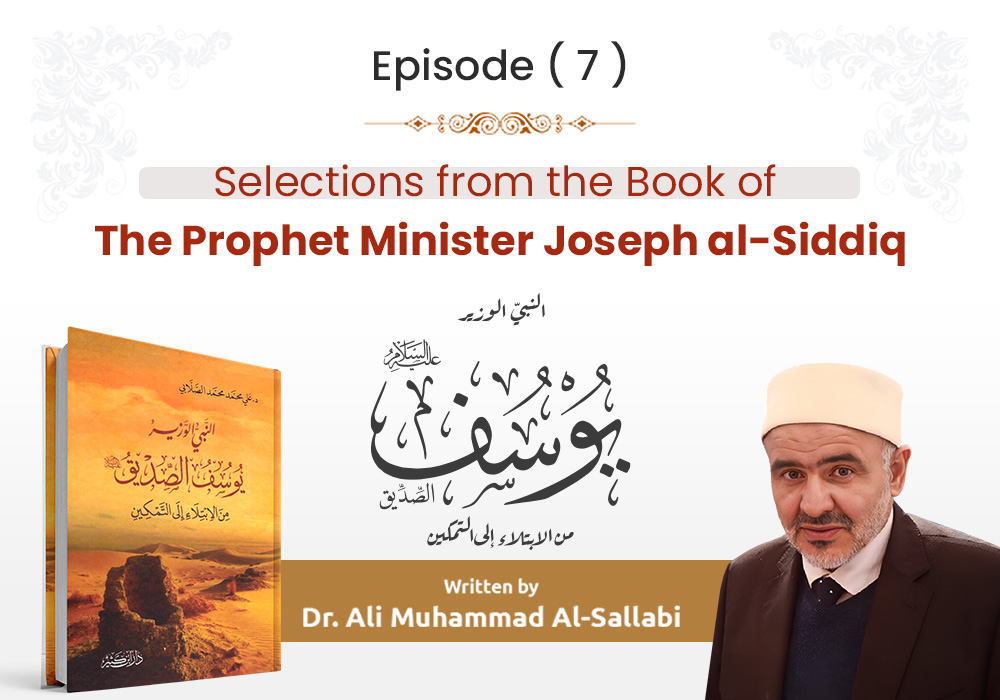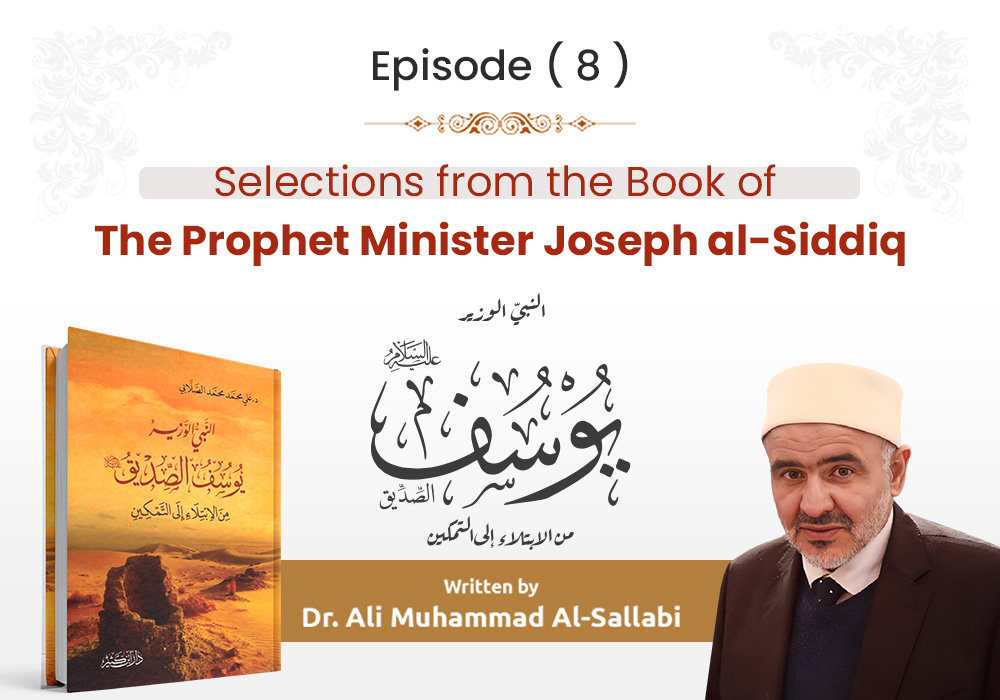The meaning of the word Yusuf (Joseph), his lineage, and his virtue
Selections from the Book The Prophet Minister Joseph al-Siddiq…
Written by Dr. Ali Muhammad al-Sallabi...
Episode (6)
A. The meaning of the word Yusuf:
The name "Yusuf" is an ancient Arabic term and corresponds to "Joseph" in Latin. Its meaning includes "possessor of kindness," "one who foretells the future," or "one upon whom Allah has bestowed the ability to see what lies ahead." It can also refer to someone with foresight or the ability to envision the future.
His father named him Yusuf based on the prevailing circumstances and the situation of that time. The meaning of Yusuf is "one with vision" or "the contemplative one with vision." It refers to someone who possesses foresight and insight, capable of anticipating or foreseeing the future based on the unfolding events in the present, a quality granted to him by Allah.
"Yusuf" is a name that doesn't need an introduction, as it is a sign indicating the path. It signifies a teacher of goodness, a guide to the straight path, an imam, an exemplary figure, and a warning sign that people can refer to. It serves as a timeless symbol, guiding people throughout the ages.
In Hebrew, "Yusuf" means increase, addition, or growth. Despite this, there is an Arabic aspect to its origin, derived from the word "آسف" (aasif), meaning saddened or grieved. So, Yusuf – when derived from– "آسف" implies a state of sorrow, as he was saddened by the separation from his father.
The significance of the name does not contradict the events of his life. He faced numerous trials, starting with the malice of his brothers, then the separation from his father, being cast into the darkness of the well, and being sold at a low price like merchandise by passersby. He experienced the hardship of slavery, faced the deceit of his master's wife and other women, was falsely accused of impropriety, and subsequently imprisoned. His life was a series of challenges, each followed by another, filled with sorrow and regret. Thus, the name aligned with the Arabic language and its derivation.
B. His lineage and virtue, peace be upon him:
Joseph, known as Yusuf in Arabic, is the son of Jacob, who is the son of Isaac, and Isaac is the son of Abraham, peace be upon them all. Joseph belongs to one of the most honorable and prophetic lineages, as he himself was a prophet, his father Jacob was a prophet, his grandfather Isaac was a prophet, and his great-grandfather Abraham was a prophet. Thus, he comes from a lineage of prophets, making him part of the noble lineage of prophets in Islam.
The Prophet Muhammad, peace and blessings be upon him, highlighted the virtues and elevated status of Joseph by emphasizing his noble lineage. According to a narration from Ibn Umar (may Allah be pleased with him), the Prophet, peace and blessings be upon him, said: "The noble, son of the noble, son of the noble, son of the noble: Joseph, the son of Jacob, the son of Isaac, the son of Abraham, peace be upon them all."
On the authority of Abu Hurairah; "The Messenger of Allah, may Allah bless him and grant him peace, was asked, 'Which people are the most generous?'' He replied, 'The most generous of them in the sight of Allah are those with the most taqwa.' They said, 'That is not what we are asking about.' He said, 'The most generous of people was Joseph, the Prophet of Allah, son of the Prophet of Allah, who was the son of Khalilullah Abraham.''
Al-Munawi commented: Which noble lineage could be more honorable than the one Joseph belongs to, being the son of three interconnected prophets, adorned with the honor of prophethood, possessing a beautiful appearance, knowledge of interpretation of dreams, leadership in worldly matters, and safeguarding the people during times of famine and adversity?
- Ali Muhammad al-Sallabi, The Prophet Minister Joseph al-Siddiq, pp. 31-33.
- The Names of the Prophets, Their Connotations and Meanings, Khaled Muhammad, Nour Houran Publishing and Distribution, Dar Al-Arab for Studies, first edition, 2016 AD, pp. 155, 156.
- The Names of the Prophets and Their Attributes, Saleh Al-Luwaizi, p. 170.
- Some educational principles derived from the story of Joseph, peace be upon him, Muhammad bin Zuraiq Al-Ruhaili, Umm Al-Qura University, first edition, 1434 AH, p. 81.
- Sahih Al-Bukhari, Muhammad bin Ismail Al-Bukhari, Dar Ibn Kathir, first edition, 1407 AH, No. 3390.
For further information and review of the sources for the article, see:
The Book of The Prophet Minister Joseph al-Siddiq on the official website of Sheikh Dr. Ali Muhammad al-Sallabi:






